Eight tips for healthy eating
Base meals on starchy foods
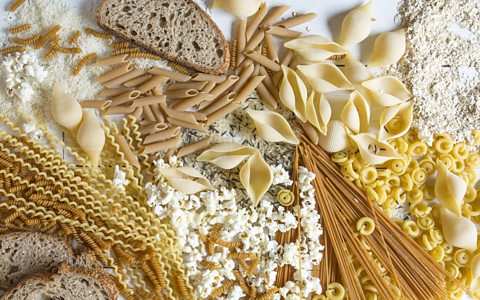
Starchy foods include cereals, rice, flour, bread, oats, potatoes and pasta.
They are a great source of energy and of a range of nutrientsChemicals found in food that perform a particular function in the body. (e.g., calcium, iron and B vitamins).
They are also high in dietary fibre which helps our bowel health.
Starchy foods contain less calories than fatty foods – less than half the calories per gram.
Eat lots of fruit and vegetables
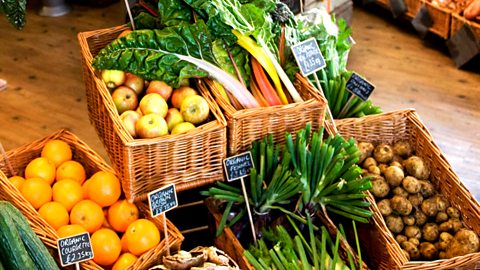
We should choose a variety of fruit and vegetables.
We should aim to eat a rainbow of colours, fresh or frozen.
Fruit and vegetables provide a range of nutrients, including dietary fibre and water.
Eat more fish
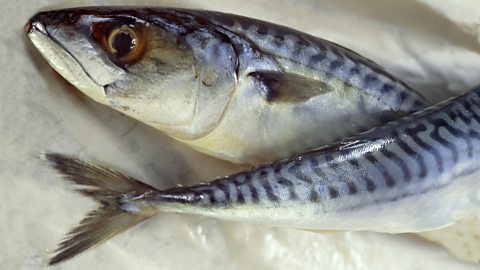
Fish is an excellent source of proteinProteins are made up of smaller units called amino acids, attached together in long chains. They are essential for the structure, function and regulation of tissues and organs. and many different vitamins and minerals.
We should try to eat one portion of oily fish (such as salmon or mackerel) per week as it is a great source of omega 3 fatty acids and vitamin D.
Both of these are essential in maintaining bone health.
Cut down on saturated fat and sugar
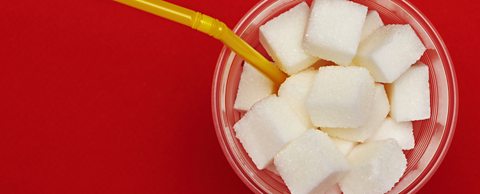
Although we need some fat in our diet to provide essential fatty acids and vitamins A, D, E and K, we also need to be careful because eating too much fat and sugar can lead to weight gain.
We should try to choose unsaturated fat sources such as vegetable oils (including sunflower, rapeseed and olive oil), oily fish, avocados, nuts and seeds.
Too much sugar in our diet can lead to tooth decay. We should try to reduce the amount of sugary snacks in between meals.
Try to eat less salt
No more than 6g a day is recommended for adults. Eating too much salt can cause hypertension – high blood pressure – which increases our risk of developing heart disease and stroke.
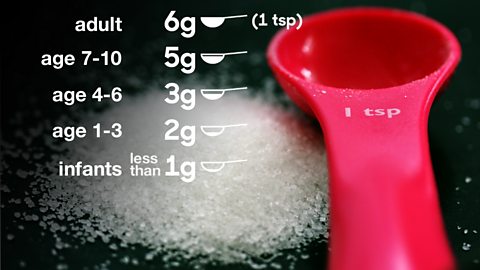
Get active

Government recommendations for 19-64 year olds are 150 minutes of brisk walking or cycling or 75 minutes of high intensity physical activity (such as running or swimming) per week.
It is also recommended that we do some weight bearing activity on at least two days a week.
When we do not use up enough energy, or when more energy is consumed than the body needs, we will gain weight. Exercise helps to achieve a healthy weight.
Don't get thirsty

Fluids are an essential component of our diet. We need to keep a healthy amount of water in our body, and we should aim to drink between 6-8 glasses of fluid per day.
While drinking water is the most healthy way to stay hydrated, most fluids you drink will contribute towards this total. Alcoholic drinks however, do not count.
Don't skip breakfast
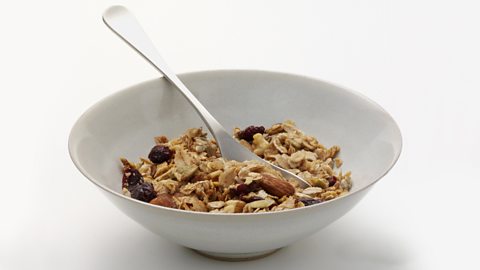
Breakfast is the first meal of the day, and is important because it provides energy for the day ahead. It is like filling up a car with fuel.
People who skip breakfast are more likely to eat high-energy foods at break time than those who had a breakfast with a good amount of fibre. This is because fibre helps keep us fuller for longer.
Breakfast also helps improve our concentration and gets our metabolismThe chemical processes in the body that cause food to be used to create new cells, to give energy and to make us grow. started.